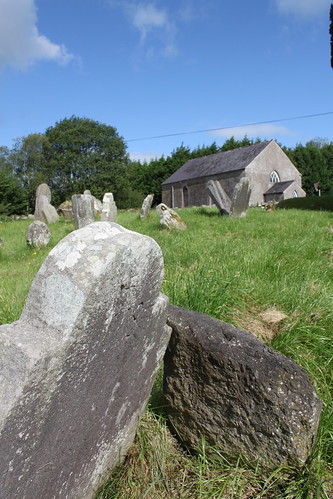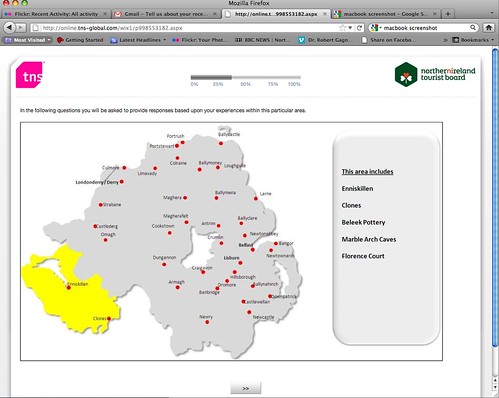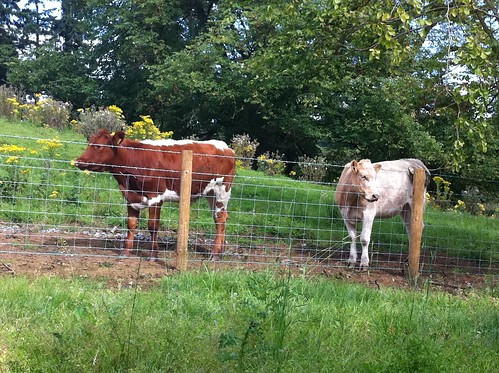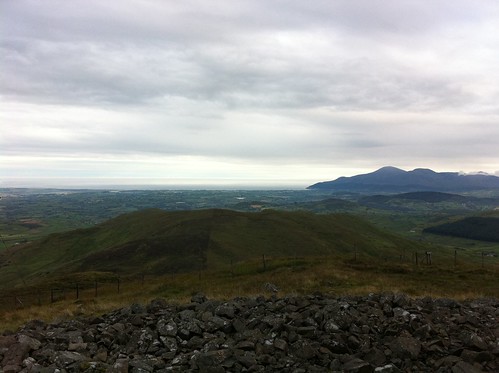When we think of the Lord’s Prayer, you immediately know what I’m talking about. In our services, the leader only has to say, ‘we’re now going to say the Lord’s Prayer’, and we instantly are ready to begin: ‘Our Father...’ It’s almost as if Jesus only ever prayed once, or only ever gave us one prayer.
As we read the gospels, though, there are lots of other prayers - just think of his high priestly prayer in John 17; or some of the other occasions when we see him in prayer, at the Garden of Gethsemane. This evening, though, I want to focus on his other prayer, the one found in Matthew 9. It’s a prayer that still needs to be prayed, as we’ll see as we turn to the text of Matthew 9.
As we come to the end of the chapter, it comes hot on the heels of the Sermon on the Mount, as Jesus is the centre of attention, as people flock to hear him teach and see him heal people, or try to be healed by him. So from the start of chapter 8, the action doesn’t stop - he comes down the mountain from the sermon on the mount, and there’s a leper to be cleansed, a centurion asking for healing for his servant (with great faith), Peter’s mother-in-law, crossing the lake and calming the storm, casting out demons on the other side, then coming back, healing the paralytic, calling Matthew, dealing with challenges from John’s disciples, and on and on.
So we come to verse 35, where he’s going through the cities and villages, teaching, and proclaiming the kingdom, and healing people. As Jesus’ fame grows, more and more people come to hear him. A great sea of people all trying to be near him.
In verse 36, we’re told what Jesus sees, then in verse 37, we’re told what Jesus says (and prays). So what Jesus sees: ‘When he saw the crowd, he had compassion for them, because they were harassed and helpless, like sheep without a shepherd.’
Have you ever noticed a field of sheep? They’ll not all be together in a nice bunch; they’ll be all over the place, doing their own thing. The other evening I climbed Slieve Croob with my brother-in-law and there were sheep roaming free on the path, in the ditch, all over the hill. They needed a shepherd to come and gather them together, keep them safe, and take them where they needed to go.
The people are lost, unsure of where to turn, without someone to guide them, trapped in their sins and burdens, wandering around aimlessly. Their life has no purpose; they have no king. Matthew tells us it’s as if they are sheep without a shepherd.
Many today are still like sheep without a shepherd. It might be seen particularly in young people, where trends develop and change, and they’ll follow the crowd (or at least feel the pressure to follow the crowd). But it’s not just young people like that. Just think of the things that drive people, that they follow and pursue in order to keep up with the Joneses - house, car, gadgets, holidays. Perhaps more money, but just as harassed and helpless.
And certainly harassed and helpless because of the burden of their sin. They may have a guilty conscience; they may keenly feel the weight of their sin, but are harassed and helpless, unable to know what to do or how to get rid of it.
I suspect that, just like Jesus, we won’t have to look too far to find people like this. Perhaps some who come along each week, yet still are harassed and helpless. Certainly not too far from these walls as we encounter people from Dundonald, our neighbours and friends and work colleagues. We may see what Jesus sees - but do we feel what Jesus feels towards them?
You see, we can talk until we’re blue in the face about evangelism, outreach, conversions - but if it’s just words, then nothing will be done. It’s nothing, if we turn away or refuse to engage with the people outside. But, we don’t want people like that coming here - we’ve got our reputation to think about! We don’t want any sinners coming in here - it would only get messy. Let’s just keep things the way they are.
Jesus, the good shepherd, sees these sheep without a shepherd, and he has compassion for them. He is moved with pity, with feeling for them, and so is moved to action. (Although, of course, he had already been moved to action because he had come to earth in the first place, already having compassion on his disciples). If Jesus has compassion for the lost, then how can we have a different reaction? How can we turn away, not wanting to get involved? Just as the Lord has saved us, so we need to share the good news with others who were just as lost as us.
Jesus sees the lost; he is moved to compassion; now let’s look at what he says, and then how he prays: ‘The harvest is plentiful, but the labourers are few.’
There’s a staffing problem - there’s more work than one man can take; an overwhelming burden. Just think of the huge job of harvesting crops before tractors and machinery came in. Nowadays a farmer in a tractor can harvest a field in no time, but what if he was going out with a scythe? The work would be overwhelming.
But Jesus isn’t talking about harvesting crops and gathering food into the barn - he’s still looking at this vast crowd of lost souls, people to be brought into God’s harvest-home. People who need to hear about the good shepherd who loved them so much that he gave his life for them, so that they might live; who need to be told that they are not helpless, or hopeless, but can have help and strength - grace - and hope through the Almighty and Everlasting One. The world is vast, the harvest is plentiful, but the labourers are few.
What do we need to do? Should we have a recruiting campaign for the Theological Institute? Should we (as the New York Roman Catholic Diocese had last year, a year of vocations - with the slogan ‘the world needs heroes: you have to be a real man if you want to become a priest.’?
Jesus’ action, having seen the need, having diagnosed the problem turns in prayer, calling his disciples to do the same: ‘The harvest is plentiful, but the labourers are few; therefore pray earnestly to the Lord of the harvest to send out labourers into his harvest.’
Jesus prays, because it is the Lord’s harvest - the very thing the Lord wants is for his harvest of his chosen people to be gathered in - and so he will answer this prayer, and will send workers into the harvest.
It’s not that we have to beg and plead and cajole God into sending more workers into his harvest - yet he delights to involve us, he calls us to partner him as we pray for gospel workers to be raised up and sent into the harvest field; to those places where the Lord directs, in order to bring in the full harvest.
For us, that means a change from Dundonald to rural Fermanagh, as we seek the harvest in those (literal!) fields; for Andrew it means heading to Dublin; for others it means new opportunities to serve through Crosslinks.
It’s perhaps the most surprising thing, maybe slightly scary, but very exciting, and it’s struck me again as I’ve thought of these verses. Jesus tells the disciples to pray for more labourers, and what is the very next thing that happens? They are the answer to their own prayers! They pray for labourers, and Jesus sends them out (10:5) to get on with the task at hand.
You don’t have to go away to be a missionary; you don’t need to go to a far off corner of the field to bring in a harvest. As we’ve seen, you just need to open your eyes, look around, and see the hopeless and helpless; the lost who are all around us, who desperately need to hear the good news, because each of us are full-time gospel workers, together on a mission.
This is a prayer that still needs to be prayed - the lost are still lost; the Lord still saves; and there’s still room in his glorious harvest-home. So pray - pray for our mission partners; pray for the continued outreach here in Dundonald; pray for us in Aghavea; and above all pray to the Lord of the harvest to send many more workers into his harvest to turn hopeless into hopeful; sinners into saints; and all for the glory of the Lord of the harvest.
This final farewell sermon was preached in St Elizabeth's Church, Dundonald on Sunday 7th August 2011.









